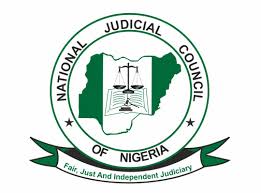The Independent Judicial Accountability Panel (IJAP) has welcomed the recent action taken by the National Judicial Council (NJC) in suspending three judges and nullifying the appointment of an Acting Chief Judge in Imo State.
Speaking in Abuja, IJAP noted that: ‘‘The decisions, taken in response to judicial misconduct and procedural irregularities, reflect growing public demand for transparency, integrity, and accountability within the judiciary.
“However, this must not remain a reactive gesture.
In a statement signed by Justice Mojeed Adekunle Owoade, Chairman, Independent Judicial Accountability Panel (IJAP), it was disclosed that as a body entrusted with safeguarding the independence and ethics of the judiciary, the NJC must rise beyond disciplinary enforcement driven only by public petitions. We reiterate the urgent need for the NJC to adopt a proactive framework which rewards consistently ethical judicial officers while identifying and disqualifying those who act in breach of public trust.”
IJAP’s recommendations, outlined in its Technical Working Group’s policy submissions, call on the NJC to: Implement a “Punishment and Reward” System. Judges who uphold integrity and demonstrate consistent professionalism should be elevated. Conversely, those who compromise due process including misusing ex parte orders should not only face sanctions but also be disqualified from elevation to the Higher Bench and from being given sensitive roles like election tribunals.
IJAP commended the NJC for its resolution to henceforth publish the names of candidates being considered for appointment as judicial officers to Superior Courts of Record for information and comments by the public.
It stated: “This will Introduce Citizens’ Scrutiny in Judicial Appointments, to enhance transparency, build public confidence, and ensure that only fit and proper candidates ascend to the bench
Make Disciplinary Reports Public to deter judicial misconduct and align the Council’s actions with public interest.
“Strengthen Judicial Oversight by investing in the collection and analysis of judicial performance data, addressing inconsistent judgments, and collaborating with the National Judicial Institute to train judiciary staff on global best practices.
“Advocate for the Passage of the Whistleblowing Bill on Judicial Misconduct, which would provide a formal mechanism for reporting unethical behaviour in the judiciary while protecting whistle-blowers from retaliation.”
The IJAP also called for urgent reform in post-electoral justice delivery, to ensure that tribunal decisions are not only timely but also uphold the democratic mandate of the people, free from political interference or inducement.
“We further emphasise that justice in electoral matters must be both swift and credible.
“The current constitutional timelines for pre-election and post-election petitions, though important, must be revisited to ensure that all election disputes are resolved before the swearing-in of declared winners. Nigeria must learn from regional peers like Kenya, where judicial processes prioritise electoral integrity and prompt adjudication.
The IJAP concluded that ‘‘In this defining moment, we call on all judicial stakeholders including the NJC, legal practitioners, civil society, and the general public, to collectively restore faith in Nigeria’s judiciary by demanding proactive reform, fostering ethical leadership, and holding all actors accountable.’’


